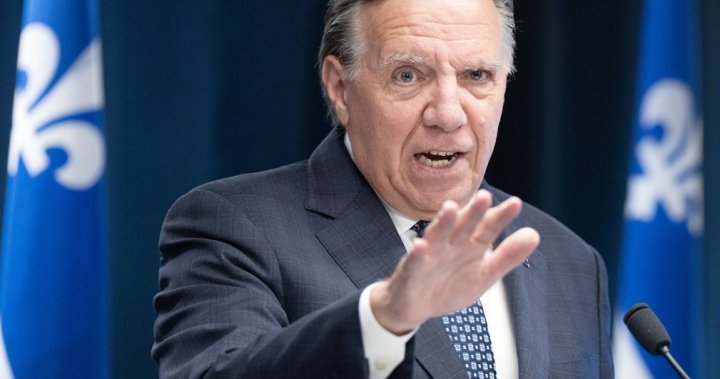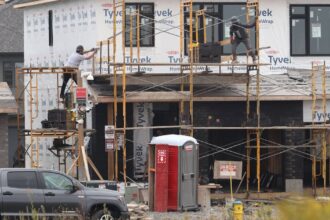In an unprecedented move that has sent shockwaves through immigrant communities, Quebec announced Thursday it will completely suspend its family sponsorship program until 2026, effectively closing a critical pathway for Quebecers hoping to reunite with loved ones from abroad. The decision marks one of the most restrictive immigration measures implemented by the province in recent years, reflecting Premier François Legault’s increasingly firm stance on managing immigration levels.
“This is not a decision we take lightly,” said Quebec Immigration Minister Christine Fréchette during a somber press conference in Quebec City. “However, the pressure on our integration services, housing market, and social infrastructure necessitates this temporary pause to ensure we can properly support those already here.”
The family sponsorship program has traditionally allowed permanent residents and citizens to bring parents, grandparents, spouses, and children to Quebec. According to provincial data, approximately 10,000 family members enter Quebec annually through this stream, representing nearly 20% of the province’s total immigration intake.
The announcement has triggered immediate backlash from immigration advocates and affected families. “My husband and I have been separated for three years while navigating the paperwork. Now we’re told to wait another two years?” said Montreal resident Sophia Tremblay, whose husband remains in Senegal. “This isn’t just bureaucracy—it’s our lives being put on indefinite hold.”
The Coalition Avenir Québec (CAQ) government has framed the decision as part of a broader strategy to address what it calls “integration challenges.” Premier Legault has repeatedly emphasized that Quebec faces unique pressures as a French-speaking society within North America, arguing that higher immigration levels threaten the province’s linguistic and cultural character.
Economic implications of the pause could be significant. The Business Council of Quebec estimates that family-class immigrants contribute approximately $1.4 billion annually to the provincial economy, both through direct spending and by providing crucial support systems that allow primary immigrants to participate more fully in the workforce.
“When we prevent families from reuniting, we’re not just creating personal hardship—we’re potentially undermining economic productivity,” noted economist Jean-Michel Laurin from the University of Montreal. “Family members often provide childcare, emotional support, and cultural connections that help principal immigrants succeed professionally.”
The federal government has expressed concern about Quebec’s unilateral action. Immigration Minister Marc Miller stated that while Quebec has certain autonomous powers regarding immigration under existing agreements, “family reunification remains a cornerstone of Canada’s immigration philosophy, and we’re troubled by this complete suspension.”
Legal experts suggest the pause may face judicial challenges. Constitutional lawyer Catherine Côté points out: “The province has significant latitude in selecting economic immigrants, but family reunification touches on fundamental rights. Courts may scrutinize whether this complete suspension meets constitutional thresholds.”
For Montreal’s diverse ethnic communities, the announcement has created widespread anxiety. Community centers report being flooded with calls from distressed residents seeking clarification and support. “People are panicking,” said Ibrahim Khalil, director of the New Canadians Resource Center. “Many had begun the sponsorship process and invested significant resources. Now everything is in limbo.”
Quebec’s decision contrasts sharply with other provinces, which continue to welcome family-class immigrants under federal guidelines. This discrepancy creates what some observers call a “two-tier immigration system” within Canada, where family reunification rights depend on provincial residence.
As Quebecers grapple with this new reality, thousands of families now face difficult choices: relocate to another province, endure years of separation, or abandon plans for reunification altogether. The human cost of this policy shift remains immeasurable, extending far beyond statistics and political calculations.
What remains unanswered is whether this temporary pause will truly address Quebec’s integration challenges, or whether it simply delays addressing systemic issues while causing unnecessary suffering to separated families. As the 2026 target date looms in the distance, will Quebec develop more sustainable immigration policies that balance legitimate integration concerns with the fundamental human desire to live together as families?










